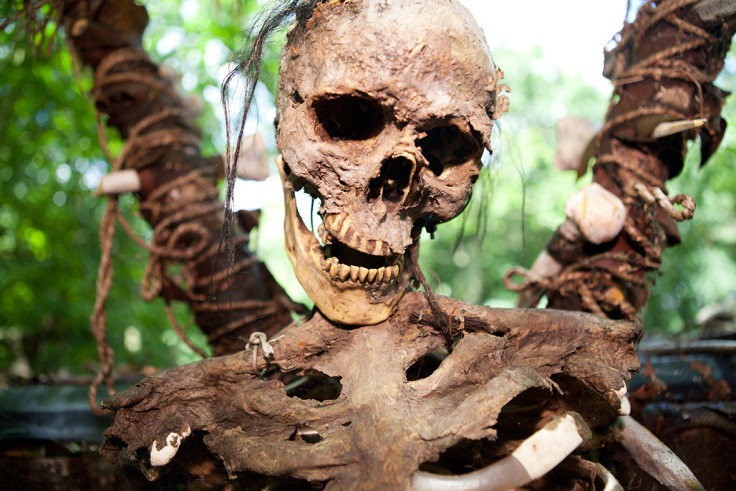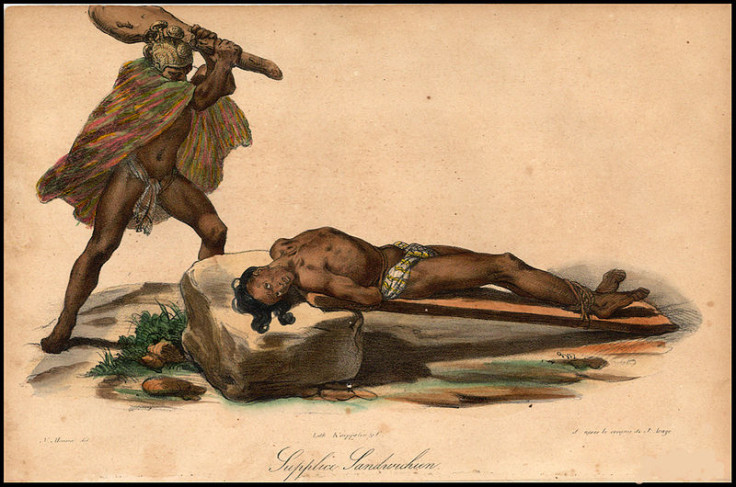Human sacrifice: How religious rituals played dark role in rise of complex societies

Ritual human sacrifices helped complex, hierarchical societies to emerge and – once in place – allowed the ruling elite to keep hold of power, a study of ancient civilisations has shown. A study of traditional Austronesian cultures looked at the purpose of human sacrifice and what impact it had on civilisations it was adopted by.
Human sacrifice is found throughout history and across the globe. It was performed for a wide variety of reasons, from the breach of a taboo to the consecration of a newly built home. However, most sacrifices pertained to supernatural beliefs. Sacrificial victims were often of low social status, while the instigators were normally of high social standing, including priests and chiefs, scientists from the University of Auckland wrote in the journal Nature.
"Methods of sacrifice included burning, drowning, strangulation, bludgeoning, burial, being crushed under a newly built canoe and being cut to pieces, as well as being rolled off the roof of a house and then decapitated," they said.
But just how did human sacrifice help society develop? To find out, the researchers looked at 93 ancient civilisations across Austronesia. Some practised human sacrifice, while others did not. Some were egalitarian, while others had complex and hierarchical political systems.

Findings showed human sacrifice was present in 43% of cultures. It was found in 25% of egalitarian societies, 37% of moderately stratified societies and 67% of highly stratified societies. More in-depth analysis showed cultures with human sacrifice were less likely to lose their social hierarches than those that did not practice it. They said the findings indicate human sacrifice functioned to stabilise social stratification once it had arisen.
"Human sacrifice substantially increased the chances of high social stratification arising and prevented the loss of social stratification once it had arisen, yet was not found to increase social stratification in egalitarian societies," they wrote. "This is consistent with historical accounts that speculate that in order for human sacrifice to be exploited by social elites, there must first be social elites to exploit it."
They said human sacrifices appears to have been a "particularly effective means" of building and maintaining social control because it minimises retaliation (because the victim is dead) and shifts responsibility to the realm of the supernatural.
"Recent evolutionary theories of religion have focused on the potential of pro-social and moral religious beliefs to increase co-operation," the study concludes. "Our findings suggest that religious rituals also played a darker role in the evolution of modern complex societies... Unpalatable as it might be, our results suggest that ritual killing helped humans transition from the small egalitarian groups of our ancestors to the large stratified societies we live in today."
More from IBTimes UK
© Copyright IBTimes 2024. All rights reserved.






